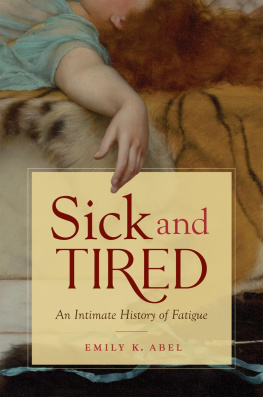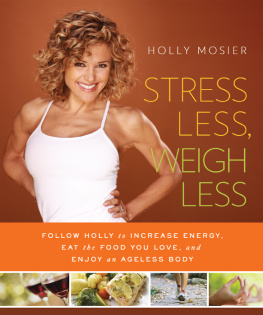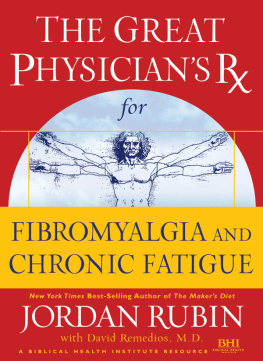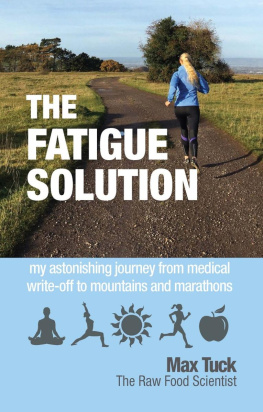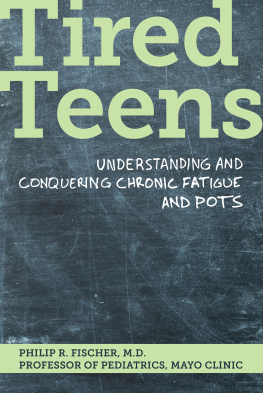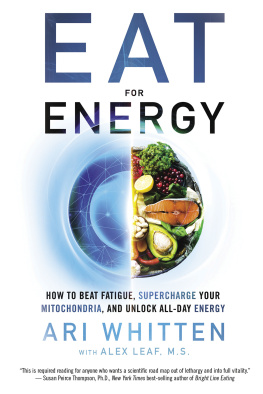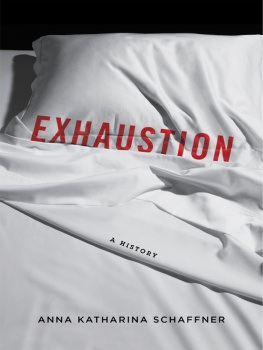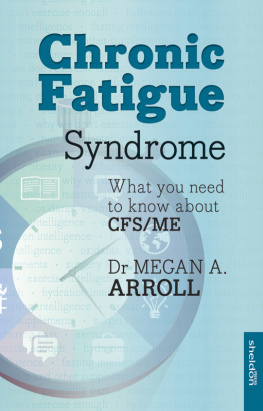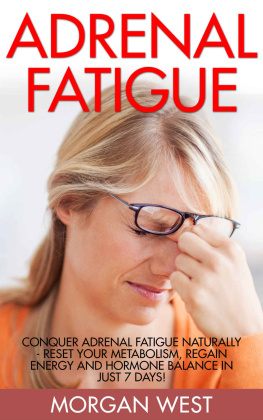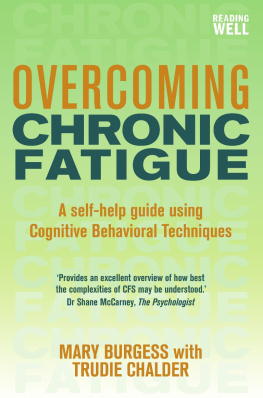To Olivia and Pascale, for making every moment magical

Contents
Part III: Sick and Tired
Acknowledgments
THANK YOU TO MY late father, Myron Phillips, for being who you were, living the way you did, and making me want to be just like you.
Id like to recognize and express tremendous gratitude to my collaborator, Stacey Colino. Your vision for what this book could be expanded my own, and your resourcefulness, dedication, and countless hours of hard work were awe-inspiring. Thank you for pouring your talent and passion into this project.
Im truly appreciative of my many mentors and colleagues from Columbia University College of Physicians and Surgeons and Lenox Hill Hospital. Herbert Chase, MD, thank you for your unwavering support when I needed it most and your infectious enthusiasm for this privilege that is the practice of medicine. And thank you, Kay Cynamon, MD, for making sure I never ordered magnesium levels unnecessarily.
Thank you, Bernard Kruger, MD, for opening up your one-of-a-kind practice to me 13 years ago and for making me a part of your incredible family. The way you practice medicine is truly how it should be done, and Im humbled to be able to learn from you every day. And Im supremely indebted to my nurse, Agata Was, for helping to solve every mystery diagnosis that comes through our door.
To my fellow journalists, producers, and friends from CBS News, CBS2 News, 48H, and CBS Radio, thank you for allowing me to do what I love for so many years; Susan Schackman, Leigh Ann Winick, Ryan Kadro, Diana Miller, Chris Licht, David Rhodes, Eric Bloom, Mosheh Oinounou, Brian Applegate, Marci Waldman, Chris Zawistowski, Weesie Viera, Susan Zarinsky, Al Briganti, Pam Auerbach, David Friend, Valerie Feder, Kim Godwin, you are all extraordinary. And a special thanks to Sharisse Scineaux and Mary McGeever for teaching me how to turn a package in 10 minutes flat.
To my fantastic team of agents at N.S. Bienstock, thank you for making it happen and keeping it happening: Carole Cooper, Steven Devall, Adam Leibner, Richard Leibner, Samantha Bina, and Julie Clark, Im so fortunate to have your support. And Paul Fedorko, you took my eureka moment, ran with it, and inspired me to run with it, and Im endlessly grateful.
Of course, no idea becomes reality without opportunity. Thank you to the team at Rodale for believing in this book and making the process seamless and pleasant. Marisa Vigilante, Kristen Kiser, Jennifer Levesque, Aly Mostel, Jess Fromm, you are all appreciated. And many thanks to Lauren Paul, Bethridge Toovell, and the entire group at Prevention magazine.
To my NYC friends who are family: Im so fortunate to have too many to list, but you know who you are. Youve made the Best City in the World my home.
Its hard to find words to capture my gratitude to my husband, Jose Tavarez. From the moment we met almost 20 years ago, you have been my biggest champion, my most important collaborator, and a superhuman foundation of love and support. Thank you for growing up with me and growing old with me.
And last but far from least, thank you to my patients for inspiring me daily and to my readers for sharing in this journey.
Introduction
DO YOU KNOW A woman who doesnt at least occasionally complain about being tired? I dont. Thats true in my busy medical practice, and its true in my personal life. Most of my conversations with close female friends start like this:
How are you?
Great! Well... exhausted, but otherwise great.
Ugh! Me, too...
Were so accustomed to this shared weariness that we dismiss it like a run-of-the-mill windy day. Sure, the fatigue is a drag on our bodies, minds, and spirits, and yes, it makes life more challenging. But many of us see womens exhaustion as so common, perhaps even unavoidable, that we figure its not worth talking about. My feeling is, it shouldnt be that way and it doesnt have to be that way, as this book will show you.
Believe me, Im intimately familiar with this phenomenon, not just as a physician but because I was tired for 20 years straight. During this time, my fatigue was often debilitating. From the moment I woke up, Id start thinking about how and when I could take a nap. Id have about 2 hours of good energy first thing in the morning, then it would wane for the rest of the day, and it had nothing to do with how long I had slept the night before. More often than not, the whole day was a struggle: It was hard for me to get places and often difficult to stay awake. I would pump myself up with caffeine throughout the day; at one point, I was drinking about a pot of coffee dailythats how I made it through medical school.
As it turns out, I had plenty of good company. Female fatigue has reached epidemic proportions, according to national statistics. In 2010, women across the United States named fatigue among their top five health concerns in WebMDs annual Year in Health survey. A 2013 survey by the Centers for Disease Control and Prevention found that 16 percent of women ages 18 to 44 reported often feeling very tired or exhaustedresponses along the more extreme end of the fatigue spectrumduring the previous 3 months, nearly double the percentage of men who did. The study didnt examine the reasons for the gender disparity, but I suspect men generally feel less fatigue.
Meanwhile, a 2013 survey by the Pew Research Center found that there is (literally!) no job more exhausting than being a mother: While mothers report that its very meaningful to care for their children, perform housework, enjoy leisure time, and do paid work, they find all of these activities to be more exhausting than men do. Not surprisingly, 45 percent of women reported feeling fatigue due to stress, according to the American Psychological Associations 2012 Stress in America survey. And in 2007, the only year that the National Sleep Foundations annual Sleep in America poll focused solely on women, 43 percent said that daytime sleepiness interferes with their daily activities.
Women also have more trouble falling asleep and staying asleep than men do, according to the National Sleep Foundation, and they take on more housework and childcare than their male partners, leaving less time for rest. In addition to experiencing exhaustion more often, women consistently report higher levels of fatigue than men do, according to a 2011 study by researchers at Stony Brook University in New York. Making matters worse, some of the most common illnesses in which fatigue is a symptomsuch as lupus, thyroid disorders, anemia, celiac disease, irritable bowel syndrome, depression, and rheumatoid arthritisoccur more frequently in women.
The exhaustion epidemic is clearly alive and well among women in the United States, which begs the critical question: Is it really acceptable that millions of women feel incredibly tired, day in and day out, without the prospect of relief in sight?
My response to that is Absolutely not! This issue should be foremost on the mind of every doctor who treats women. Instead, fatigue is often viewed as an unfortunate fact of a busy womans life, as unavoidable as elevator music or calls from telemarketers.
When my exhaustion was becoming debilitating while I was a medical student, the doctors I consulted basically said, Of course youre exhaustedyoure in medical school! Yes, I expected to be as short on sleep and dependent on coffee as any other doctor-in-training, but I knew that my fatigue went well beyond what my peers were experiencing. Simply put, I felt wiped out nearly every hour of every day. Still, I let the prevailing notion that medical students are destined to feel drained discourage me from aggressively seeking treatment. Like so many other women, I bought into the idea that painful exhaustion was the penalty I had to pay for being ambitious and working hard.



